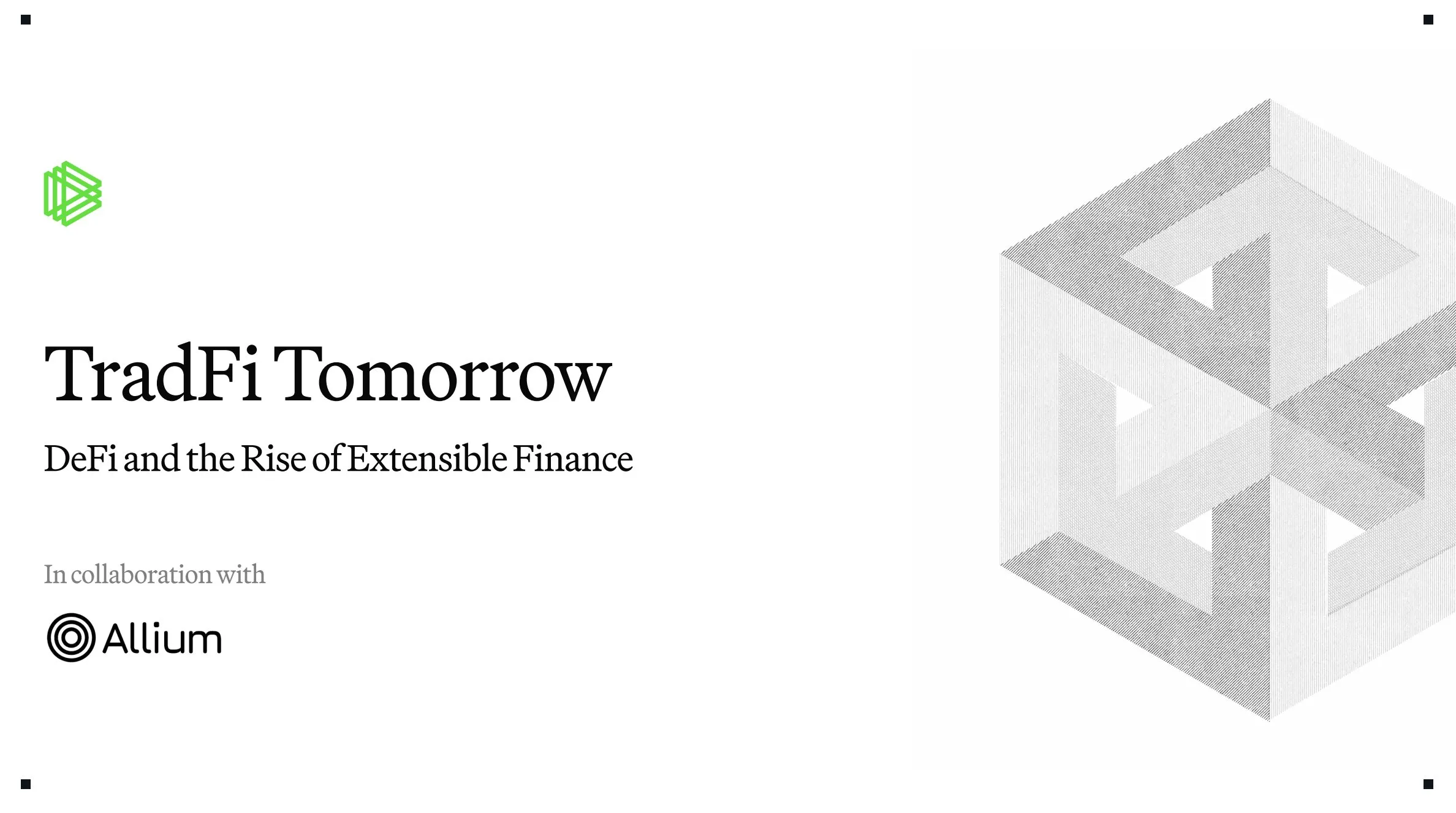What’s Happening with Institutional Adoption of DeFi?
On March 24, 2025, Austin King (@0xASK) shared a fascinating thread on X about a new report from Paradigm, one of the largest crypto venture capital firms, titled TradFi Tomorrow: DeFi and the Rise of Extensible Finance. Collaborating with Allium, a blockchain data platform, the report dives into how traditional finance (TradFi) institutions are adopting decentralized finance (DeFi) and blockchain technology. Austin read the 47-page report and broke down the five most shocking takeaways for us. Let’s explore what this means for the future of finance in a conversational way, with simple explanations for the technical bits.
Takeaway 1: TradFi Is Already Deep into Crypto
The first big reveal? A whopping 76% of TradFi firms are already involved with crypto in some way. This includes major players like Fidelity, BlackRock, and Visa, as shown in the report’s data. Whether it’s building blockchain products, investing in crypto projects, or just researching, these institutions are quietly exploring the space. Why aren’t we hearing more about this? Austin points out that public perception of crypto as “risky” is holding them back from marketing their efforts. But behind the scenes, they’re moving fast.
For context, TradFi refers to traditional financial systems like banks and investment firms, while DeFi is a blockchain-based alternative that cuts out middlemen using smart contracts—think of them as automated, trustworthy agreements. The fact that 66% of these firms are also dabbling in DeFi shows they’re serious about this tech.
Takeaway 2: Public Blockchains Are the Future, Not Private Ones
One of the most surprising shifts is that TradFi firms now prefer public blockchains over private or permissioned ones. A public blockchain, like Ethereum, is open to everyone, while private blockchains are controlled by specific organizations. The report highlights that public chains offer better neutrality, connectivity, and liquidity—basically, they’re easier to use, more accessible, and have more money flowing through them. This is a big change from five years ago when private blockchains were the go-to for institutions worried about security and control.
This aligns with what Paradigm has noted before: even central banks are moving toward open-source networks. So, the same blockchains you and I might use for DeFi apps could soon power TradFi operations too.
Takeaway 3: DeFi Is Seen as Inevitable
Here’s where it gets wild—almost all TradFi firms believe DeFi will eventually become critical to their core businesses. The report shows that 34.7% of firms think DeFi will be “critically” important in 5–10 years, and 27.2% say the same for the next 1–5 years. Why are they so confident? Many of these professionals lived through the internet revolution in the ‘90s, which completely reshaped finance. They see DeFi as the next big wave, capable of streamlining operations and cutting costs.
DeFi’s appeal lies in its efficiency. For example, tokenizing assets like bonds (turning them into digital tokens on a blockchain) can make transactions faster and cheaper, as TheCryptoUpdates explains. Big names like BlackRock and Fidelity are already exploring this.
Takeaway 4: Cost Savings Are Driving Adoption
Why are TradFi firms so eager to adopt crypto? It’s all about the money—specifically, saving it. Traditional finance is a cutthroat industry with razor-thin margins. Blockchain tech, especially DeFi, offers a way to lower operational costs, giving firms a competitive edge. Imagine reducing the fees and delays of cross-border payments or automating complex processes with smart contracts. That’s the kind of efficiency they’re chasing.
The report from Paradigm confirms this: TradFi sees DeFi as a “transformative fix” to cut inefficiencies that “stifle economic growth and drain resources.” It’s not about ideology—it’s about staying profitable.
Takeaway 5: Regulatory Clarity Is the Biggest Hurdle
So, what’s holding TradFi back from going all-in on DeFi? Regulation—or rather, the lack of clear rules. The report found that 52% of firms cite regulatory uncertainty as a major barrier. Other concerns include cybersecurity risks and a lack of internal expertise, but regulation tops the list by far. Without clear guidelines, many firms are hesitant to fully commit, even if they see the potential for massive cost savings.
However, there’s hope on the horizon. Austin notes that the Trump administration is making rapid progress on crypto regulation, which could pave the way for broader adoption. Once the rules are clear, we might see an explosion of DeFi activity in TradFi.
Why This Matters for the Future of Finance
This report is a game-changer because it shows how seriously TradFi is taking DeFi and blockchain tech. We’re not talking about a niche experiment anymore—major institutions are betting on this as the future. The shift to public blockchains, the belief in DeFi’s inevitability, and the focus on cost savings all point to a financial system that’s about to look very different. And with regulatory clarity on the way, the barriers are starting to crumble.
If you’re curious to learn more, Austin (@0xASK) shares research like this regularly on X. The full report from Paradigm is also worth a read if you want to dive deeper into the data.
Share Your Thoughts
Were you surprised by how much TradFi is embracing DeFi? Share this article with your friends and let’s get the conversation going! What do you think the financial system will look like in 5–10 years with DeFi in the mix?

